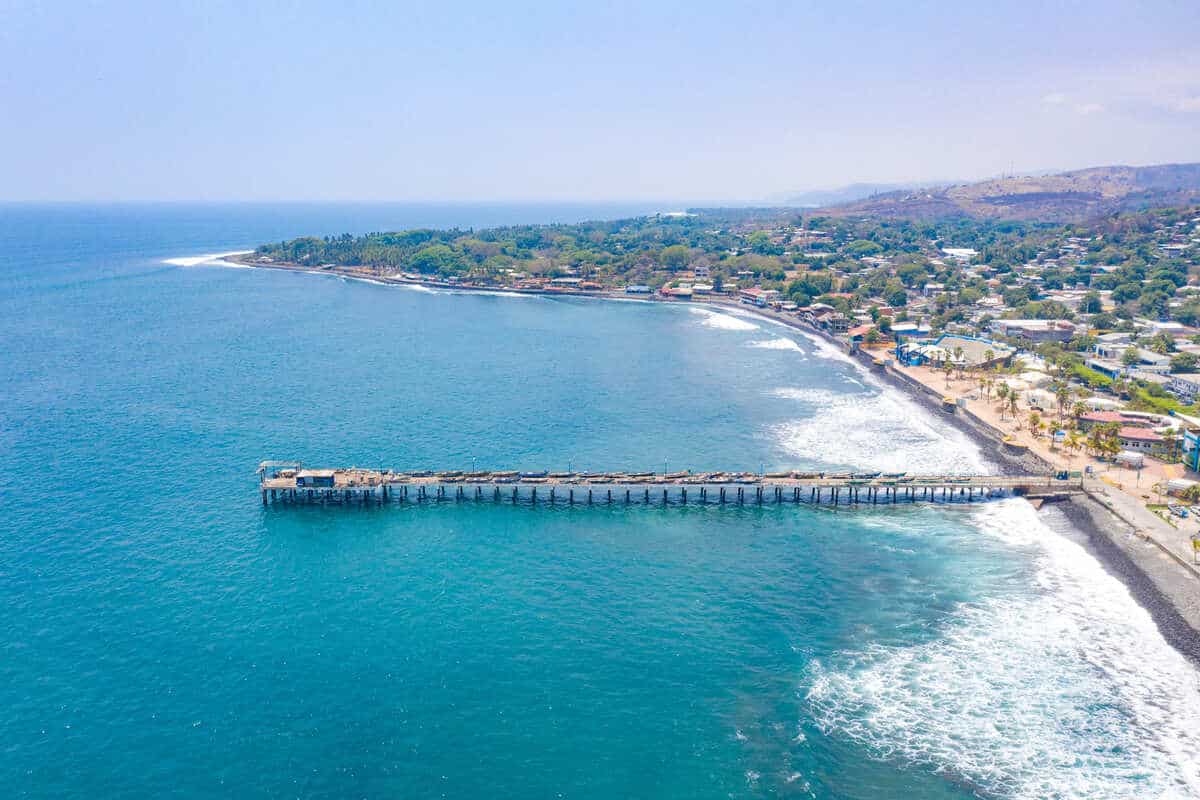Latin America is one of the top destinations for Americans looking to immerse themselves in a completely different culture, sample a colorful cuisine, and bear witness to a jaw-dropping nature.
Be that as it may, a majority of tourists still refuse to go off the main path as a result of misleading travel alerts or common misconceptions that certain countries are unsafe.
Sometimes, it’s the lesser-known places that impress us most, and there is one Latin country in particular that has yet to be swarmed by sun-seekers, even though it boasts a stunning Pacific coastline, lush green forests, and preservation areas unspoiled by mass tourism, and a fascinating culture blending Mesoamerican and European influences.
Welcome to El Salvador, one of the most underrated countries in the Global South yet a very promising destination for 2023:
The Shortest Introduction To El Salvador
El Salvador is located on the narrow, central isthmus that links both North and South America, a region packed with natural landmarks and known for its enviable cultural wealth. Interestingly, while its neighbors have quickly developed in recent years as tourist destinations, El Salvador was relegated to the secondary role of the under-visited, obscure neighbor.

People may have heard it exists or have a vague notion of the country’s recent History and tourist offers, but most wouldn’t be able to name the capital or pin it on a map.
That could soon change as a rising number of country hoppers exploring the Latin World grow wary of the cruise ship guests storming the beaches in Belize and the polished ecotourism of Costa Rica and begin looking elsewhere for more unique experiences.

If it’s off-grid travel that makes your heart beat faster, then this is definitely where you should be headed.
The Land Of Volcanoes
El Salvador is renowned, or more accurately; it is becoming more widely known as a natural world destination. It’s been alternatively called ‘the Land of Volcanoes’, due to its rugged topography and numerous active volcanoes.
It is also the only country in Central America that does not straddle the Caribbean, being entirely located on the Pacific side instead.

The beaches are not as developed, and you may struggle to find international hotel brands in the country’s remotest and truly pristine locations, but that’s precisely what makes it so incredibly precious: the golden sands are unruffled, and the swimming spots almost deserted, despite the sunny weather and inviting tropical atmosphere.
With limited tourism, which is in itself a result of limited promotion, the local nature is mostly undisturbed and waiting to be discovered – and being a small country, El Salvador’s natural diversity can easily be explored over a week-long vacation, from the volcanic craters in the densely forested hinterland to the swimming spots lining the coast.

Culture enthusiasts are also in for a treat, as El Salvador is home to Mayan citadels, colonial-era, cobblestone towns evocative of the Spanish Empire’s glorious past, and a vibrant capital easily distinguished for its modernist architecture and world-class museums, and monumental Catholic churches.
Some of the best destinations in El Salvador include:
- San Salvador, the country’s capital and main point of entry
- La Union, a coastal community and adventure capital serving as the gateway to the Gulf of Fonseca and Concagua Volcano
- La Libertad, a Southwestern department sitting on the shores of the Pacific, where surfers can enjoy some epic waves and visit Mayan ruins

- Lago de Coatepeque, a massive crater lake in Western Salvador bounded by forested peaks and dotted with traditional Salvadoran villages, including El Congo
- San Miguel, a city in the Eastern provinces famous for its carnival, taking place every November, and the majestic San Miguel volcano
- Suchitoto, a mountain town in the Cuscatlán department highlighted by its colonial heritage and 19th-century buildings
- Santa Ana City, whose towering neo-Gothic Cathedral dominates the skyline and where the best coffee in El Salvador is produced
Is It Safe To Visit?

El Salvador has made headlines in recent years for an apparent democratic backsliding, led by the nation’s current President, Nayib Armando Bukele Ortez, who the media have portrayed as Latin America’s first 21st-century dictator due to his authoritarian aspirations. Despite criticism, Nayib enjoys widespread popular support in El Salvador.
Nayib’s rise to power has discouraged some tourists from visiting, particularly those concerned with Human Rights violations. Politics aside, however, vacationers looking to have some quality time at the beach, or soak up nature, have little to worry about, as these issues do not affect them.

When it comes to crime, violent incidents are, in fact, on a downward trend, as noted by Morena Valdez, the Minister of Tourism, possibly as a result of Nayib’s tough, controversial approach to crime control. The overly cautious U.S. Department of State itself concedes there has been a ‘significant reduction’ in gang-related activity in the country, despite violent crime continuing to be a concern in certain areas.
The current Government is keen on modernizing the country further and fighting crime more actively, though, as they seek to position El Salvador as a safe destination to visit. For now, American tourists must be aware of their surroundings, avoid walking alone after dark, and leave valuables such as expensive watches or jewelry at their hotel.

El Salvador Is Open For Tourism
El Salvador has no COVID entry requirements in place. All foreigners are welcome, regardless of nationality or point of departure, without vaccination proof or pre-departure testing, making it one of a select few in Latin America to have fully reopened for tourism restriction-free.

